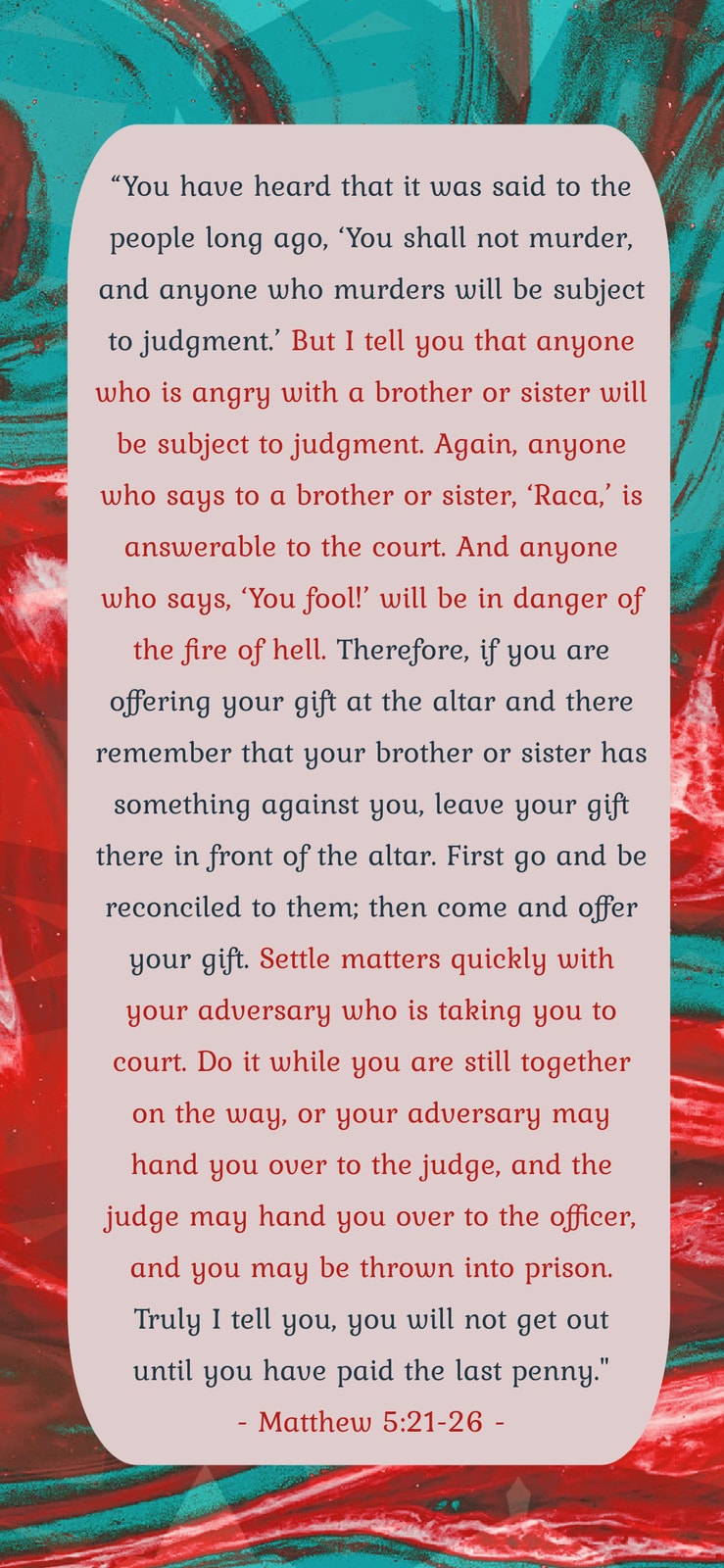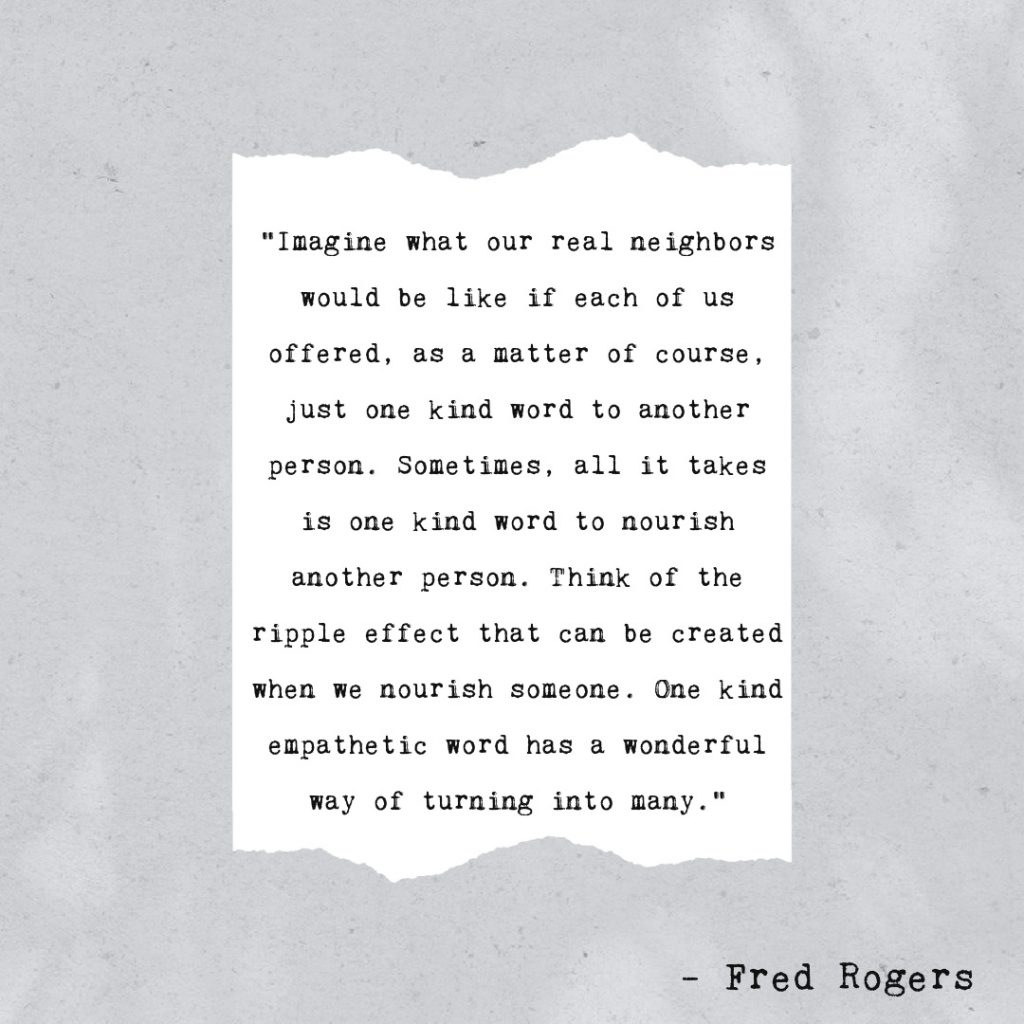We are all familiar with the phrase, “Sticks and stones may break my bones, but words will never hurt me.” And at some point in each of our lives, we come to the understanding that this statement is emphatically untrue. Even children understand that words can and do hurt, quite badly. At times, words can do FAR more damage than sticks.
We know this. . . or at least, we think we do. But how good are we at implementing this knowledge? If Twitter feeds and behind-closed-doors therapy sessions are any indicator, we are a society that is pretty lousy at taking care with our words. We lash out in anger, hurl criticisms and malicious observations with abandon, and indulge in gossip, slander, and verbal chastisement with no thought to the damage our words might prompt. We show a united opposition to bodily violence while stealthily wielding our weaponous words with deadly precision.

The Old Testament dedicates a lot of page time to guidelines regarding physical behavior. When Jesus came onto the scene, He didn’t disregard those Old Testament commands; He expounded upon them! In some of the harshest portions of the Sermon on the Mount, He reminds His disciples that refraining from physical violence is not enough. They (we) were to apply the same cautious care to their words and their emotions. The OT standards were high, but Jesus’ raised the bar! Jesus made it very clear that God was not only concerned with what His people did with their bodies; He was also paying close attention to their mouths and their hearts.
Praise the Lord that Jesus’ sacrifice imbues us with His righteousness, covering our sins with grace, because we could never measure up to these standards for physical, emotional, and verbal behavior. Still, if we hope to follow in Jesus’ righteous footsteps and embrace His precepts for fruitful and flourishing lives, the principles of the Sermon on the Mount still apply. We are to refrain from malicious attitudes and disrespectful speech, and when we fall prey to our sin nature in these areas, we are to be quick to make amends. Jesus places a high priority on peace and reconciliation among His people; brokenness within our human relationships leads to brokenness in our unity with Him, therefore every wound needs to be swiftly addressed.
I don’t need to go far to identify areas where I am not doing this well. Sadly, the beautiful souls who share my home are the most frequent victims of my thoughtless words and uncharitable attitudes. If I want to adopt the practices of keeping short accounts, making fast amends, and taking greater care with my thoughts and my speech, I can begin this minute with how I choose to respond to my husband and my kids.
As a perfectionist, my tendency in navigating these challenges is to berate myself the minute I find myself falling short. Because it’s so hard to confront my shortcomings, I turn a blind eye to my poor behavior. The answer is not to engage in flagellation over my sin, or to pretend that it never happened; rather, a healthy and Christlike posture is to welcome the Holy Spirit’s correction and then seek His help in repairing what has been broken. Acknowledging my wrongdoing, apologizing without expecting anything in return, asking the Lord’s forgiveness and support the next time I stumble into sin. These are difficult to do. But if Jesus’ words are to be believed, these steps are crucial. Just as crucial as making restitution after committing murder.
In doing this, I need to remember to keep my eyes on my own paper! Jesus doesn’t invite us to police each other’s emotions or speech. This isn’t a free pass to call others out when they have spoken unkindly or held a grudge. This is all about ME and MY HEART and MY BEHAVIOR. It is important to keep these admonitions from becoming grounds for my personal victimhood. Rather, this is a hard but important reminder to take full and complete responsibility for my whole self, and not just the more obvious parts that others may see.

A few weeks ago, a friend sent me a text message apologizing for an offhanded remark she had made the last time we were together. I hadn’t been offended by her words, could hardly recall them when her text reminded me of what she had said. But I was touched by my friend’s quickness to recognize her own insensitivity and make it right. And I was inspired by the courage and humility it must have taken for her to expose a potential tear in our friendship, then quickly work to repair the wound before it was given time to fester. I hope to follow in my friend’s footsteps: being kind, respectful, intentional, and honoring in my words and attitudes, and rushing to apologize when I slip up.
Jesus, I thank your for holding us to a higher standard—not to shame or condemn us, but to show us a better way to do life. Please help me as I adopt your heart for others that leads me to take better care with my words and with my attitude. And thank you for your grace that cleans up the messes I cannot.